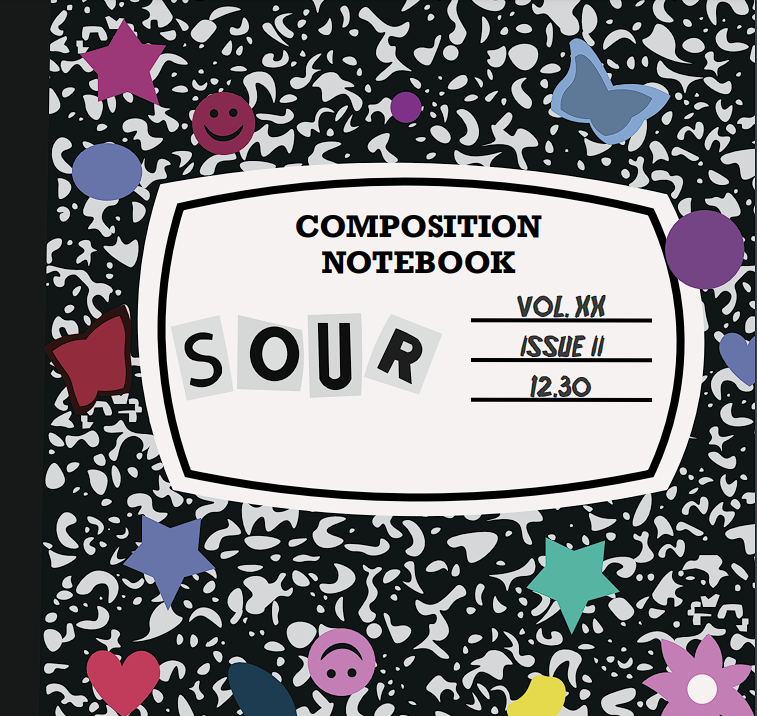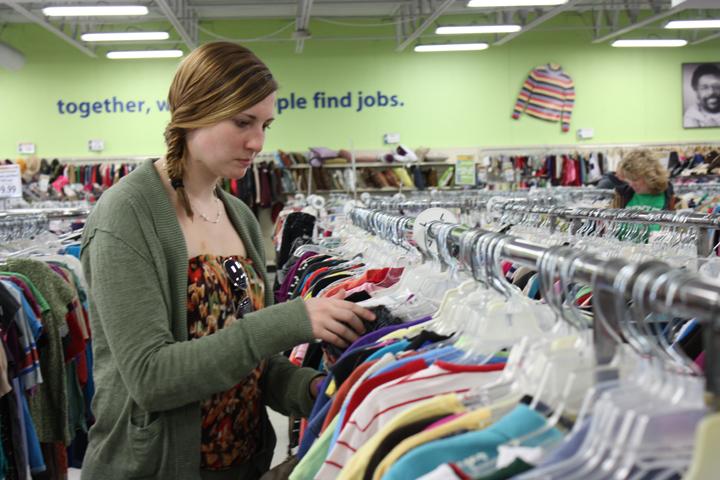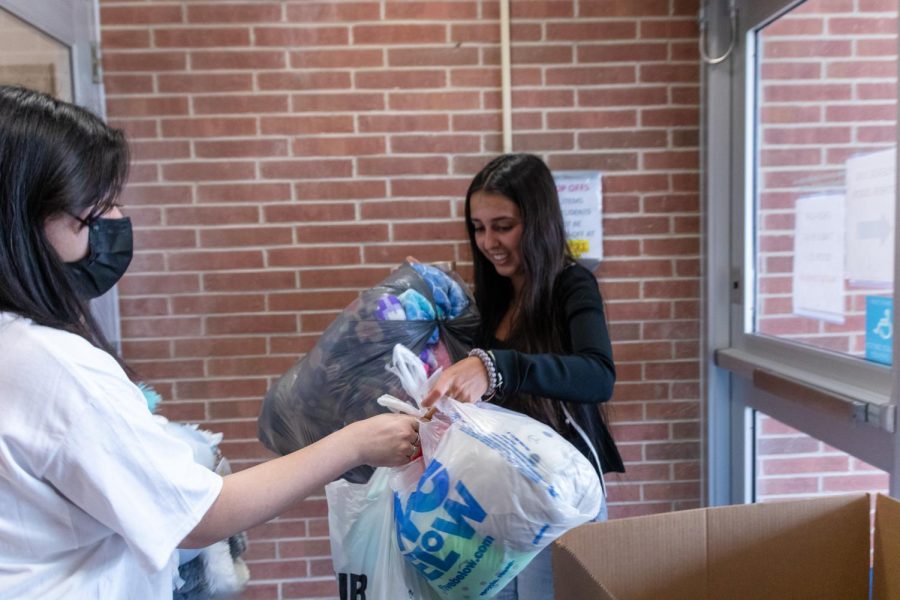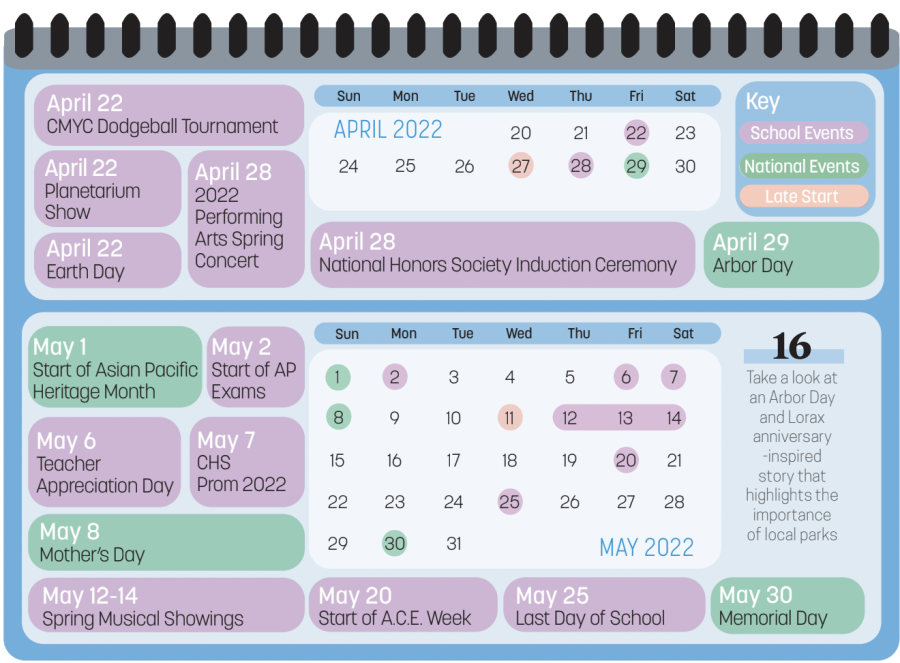 Every week this year, senior Jessie Meltzer developed a habit of turning on the TV to her two favorite shows: “How I Met Your Mother” and “Breaking Bad”. Despite the clear differences between the two shows, there are significant elements of romance in both of them.
Every week this year, senior Jessie Meltzer developed a habit of turning on the TV to her two favorite shows: “How I Met Your Mother” and “Breaking Bad”. Despite the clear differences between the two shows, there are significant elements of romance in both of them.
Compared to Meltzer’s over two-year relationship with her boyfriend, senior Ethan Stanley, the portrayal of relationships on TV, in movies and in the media creates a clearly conspicuous disparity versus relationships in real life.
“There definitely seems to be a dramatic difference between the two. Relationships on TV are pretty dramatic in that they show the extremes of both sides. You know, they show couples being really, really happy together, but they also show them being really upset and angry with each other,” Meltzer said, “And to an extent, I think it’s true, because there are times when you fight with your boyfriend or girlfriend, but there are also times when you’re happy, but it’s definitely not to that extreme.”
Stanley said, “The emotion that movies and shows portray, by stretching and exaggerating things, evokes those same emotions in the audience, which captivates and intrigues viewers to keep watching.”
Jeremy Osborn, director of the Center for Teaching Excellence at Grand Rapids Community College and author of a paper revealing the effects that romance in TV shows has on real-life relationships in September 2012, also said TV and movies typically focus more on the dramatic, more interesting parts of relationships, in addition to skewing the portrayals to the extreme, instead of the normal, ordinary interactions, which compose the majority of a relationship.
“One of the big differences is TV shows and movies don’t focus on the mundane, day-to-day kind of work and maintenance that goes into relationships. It focuses more on more exciting and interesting things like grand romantic gestures. I mean if you really look at what kind of the glue that holds together relationships, a lot of it is in the mundane, day-to-day stuff. It’s in the conversations around the dinner table. It’s in how you treat each other all the time and how you talk to each other and the little things you do for each other,” Osborn said. “It’s not in the grand romantic gestures, which usually get focused on, because if I’m going to write a 90 minute screenplay about a relationship, I’m not going to spend 90 minutes showing people having mundane dinner conversations.”
Senior Nik Karklins said he has also noticed the dramatized relationships in the media, in contrast to his relationship. However, he believes there is a reason behind this besides making the TV show or movie more interesting and entertaining for the viewer.
Karklins said, “I know at times, (the media) almost over exaggerates the goods and the bads in some relationships. But I think that they portray (love and relationships) dramatically to make sure that the audience understands what is happening between the two people, emotionally.”
According to Meltzer, in addition to those cheesy, romantic gestures, fights between couples are also a reoccurring aspect in TV and movies. Although real-life couples are also bound to face arguments, Meltzer said they are normally more private about fights than couples on TV shows.
“Obviously, TV shows are more dramatic, and in arguments they tend to pull in a lot of other people into their drama. Like, when couples are fighting, it’s like everybody’s business in the show, and it creates all this commotion where everyone that you see in the show basically takes a side,” Meltzer said. “But in real life, it’s definitely not like that. Especially, I know, when me and my boyfriend get into a fight, I will ask for advice from someone, but I definitely won’t make it everybody’s business.”
Although highly dramatic, the fights couples have in TV shows and movies rarely are unresolvable, according to Osborn.
Osborn said, “When you have a show like “Modern Family”, you know, in shows like that, it’s not that the couples don’t necessarily have little spats, but it’s very rare that 30 minutes will pass and it won’t be resolved by then.”
Movies are the same, according to Osborn. Even when things seem the worst of the worst in a relationship, there’s always a way out. There’s always that moment when they realize they were meant to be together, and then they make-up and live happily ever after.
However, Osborn said, “At the end of the day, in real life, there are sometimes conflicts that don’t have neat resolutions like that.”
This disparity between relationships in the media and in real life does affect real-life relationships, according Osborn’s research. After surveying 392 married individuals, analyzing their relationships and comparing them to what kinds of TV shows they watched, Osborn concluded that the higher someone’s belief was in the TV’s portrayal of relationships, the lower his or her commitment levels to the relationship was.
Both Meltzer and Stanley fall under the category of people who do not believe strongly in the media’s depiction of romance and relationships.
Stanley said, “The dramatized portrayal of love in TV shows and movies hasn’t really affected me or my relationship, because I was never really into romantic movies or TV shows. But I know girls sometimes will see the “perfect relationship” in some movies, when in reality, those things usually just don’t happen.”
Meltzer, who does watch TV shows with romantic relationships, said, “If you’ve ever been in a serious relationship, I think it’s easier to see that (couples in TV) are not very realistic because of what you’ve experienced, so it hasn’t really affected me in being like, ‘Oh, I want to be like them’ or something. It’s more like ‘I know that’s not real, so I don’t really have any desire to be like that.’ However, people who are wanting a relationship or have never really been in a serious one, I think those people are more likely to look at it and think, ‘Oh, look how unrealistically happy they are. I want to be like that.’”
Although Meltzer said that she and Stanley aren’t affected by the skewed romance in the media, Osborn said that there are some people who do watch romantic comedies and start to let those movies influence their expectations in their relationships.
Karklins said although his relationship now isn’t influenced by romance in media, he did have a few, slight preconceived notions before going into his first relationship.
“Before my first relationship, I felt like it would be all happy and fun, but that just shows producers do over exaggerate relationships in media, TV and movies to make us want it to be like that in our relationships,” Karklins said. “I don’t expect my relationship to be perfect where we never fight. I expect to have some rough times, but that’s normal in a relationship.”
While Meltzer, Stanley and Karklins all fall under the category in Osborn’s study of not being very influenced by how relationships are portrayed in the media, Osborn said people who are, in turn, influenced by the media, want the “fairytale.”
Osborn said, “It’s like at the very end of “Pretty Woman”. Julia Roberts says, ‘I want the fairytale.’ That’s what she says—‘I want the fairytale.’ And that’s what people want; people want the fairytale.”
However, Osborn said, “There is a take-away point there; it’s that knowledge is power. Just have some self-awareness; just kind of look at yourself and try to figure out what is the real problem in whether these expectations are realistic. Is it driven by media, is it driven by books or is it driven by something that’s actually grounded in the real world, and not the MTV show, ‘The Real World?”



















![Joseph Broman, Mu Alpha Theta sponsor, grades tests for his honors precalculus/trigonometry class. Broman said, “I’m retiring from the Math Club next year and I’m just going to do Mu Alpha Theta so I can focus on that one and we can do more [speaker series] first semester.”](https://hilite.org/wp-content/uploads/2024/03/IMG_9502-1200x900.jpg)











![British royalty are American celebrities [opinion]](https://hilite.org/wp-content/uploads/2024/03/Screenshot-2024-03-24-1.44.57-PM.png)




















![Review: “The Bear” sets an unbelievably high bar for future comedy shows [MUSE]](https://hilite.org/wp-content/uploads/2024/03/unnamed.png)
![Review: “Mysterious Lotus Casebook” is an amazing historical Chinese drama [MUSE]](https://hilite.org/wp-content/uploads/2024/03/0.webp)
![Thea Bendaly on her Instagram-run crochet shop [Biz Buzz]](https://hilite.org/wp-content/uploads/2024/03/IMG_0165-1200x838.jpg)
![Review: Sally Rooney’s “Normal People,” is the best book to read when you are in a time of change [MUSE]](https://hilite.org/wp-content/uploads/2024/03/20047217-low_res-normal-people.webp)
![Review: “One Day” broke me for the second time, but this time it hurt worse [MUSE]](https://hilite.org/wp-content/uploads/2024/03/unnamed-8.png)
![Review in Print: Maripaz Villar brings a delightfully unique style to the world of WEBTOON [MUSE]](https://hilite.org/wp-content/uploads/2023/12/maripazcover-1200x960.jpg)
![Review: “The Sword of Kaigen” is a masterpiece [MUSE]](https://hilite.org/wp-content/uploads/2023/11/Screenshot-2023-11-26-201051.png)
![Review: Gateron Oil Kings, great linear switches, okay price [MUSE]](https://hilite.org/wp-content/uploads/2023/11/Screenshot-2023-11-26-200553.png)
![Review: “A Haunting in Venice” is a significant improvement from other Agatha Christie adaptations [MUSE]](https://hilite.org/wp-content/uploads/2023/11/e7ee2938a6d422669771bce6d8088521.jpg)
![Review: A Thanksgiving story from elementary school, still just as interesting [MUSE]](https://hilite.org/wp-content/uploads/2023/11/Screenshot-2023-11-26-195514-987x1200.png)
![Review: When I Fly Towards You, cute, uplifting youth drama [MUSE]](https://hilite.org/wp-content/uploads/2023/09/When-I-Fly-Towards-You-Chinese-drama.png)
![Postcards from Muse: Hawaii Travel Diary [MUSE]](https://hilite.org/wp-content/uploads/2023/09/My-project-1-1200x1200.jpg)
![Review: Ladybug & Cat Noir: The Movie, departure from original show [MUSE]](https://hilite.org/wp-content/uploads/2023/09/Ladybug__Cat_Noir_-_The_Movie_poster.jpg)
![Review in Print: Hidden Love is the cute, uplifting drama everyone needs [MUSE]](https://hilite.org/wp-content/uploads/2023/09/hiddenlovecover-e1693597208225-1030x1200.png)
![Review in Print: Heartstopper is the heartwarming queer romance we all need [MUSE]](https://hilite.org/wp-content/uploads/2023/08/museheartstoppercover-1200x654.png)























![Review: Ladybug & Cat Noir: The Movie, departure from original show [MUSE]](https://hilite.org/wp-content/uploads/2023/09/Ladybug__Cat_Noir_-_The_Movie_poster-221x300.jpg)

![Review: Next in Fashion season two survives changes, becomes a valuable pop culture artifact [MUSE]](https://hilite.org/wp-content/uploads/2023/03/Screen-Shot-2023-03-09-at-11.05.05-AM-300x214.png)
![Review: Is The Stormlight Archive worth it? [MUSE]](https://hilite.org/wp-content/uploads/2023/10/unnamed-1-184x300.png)





